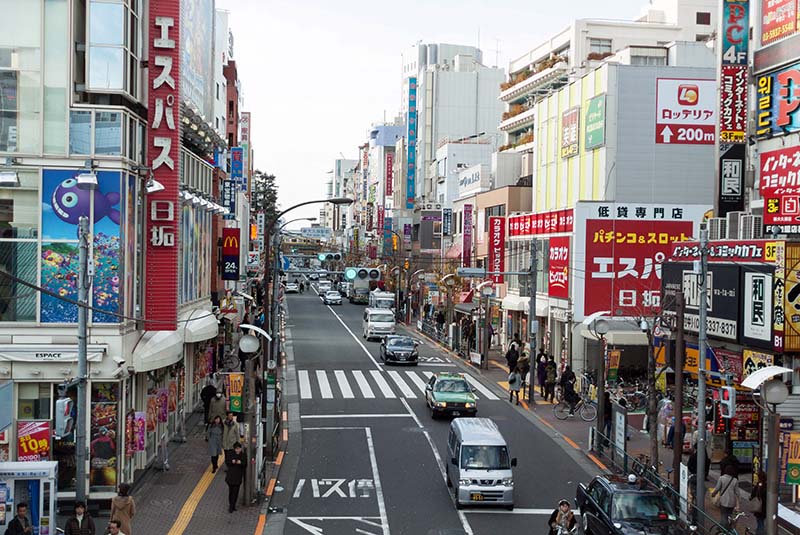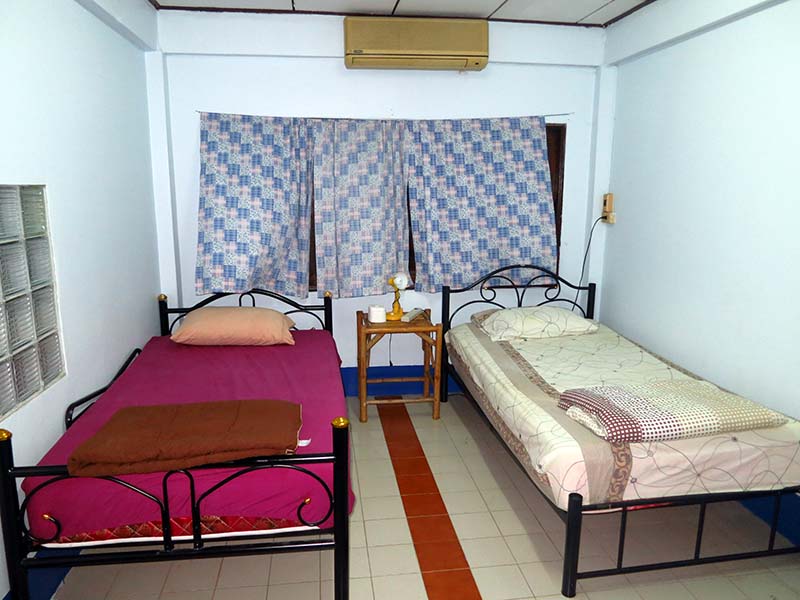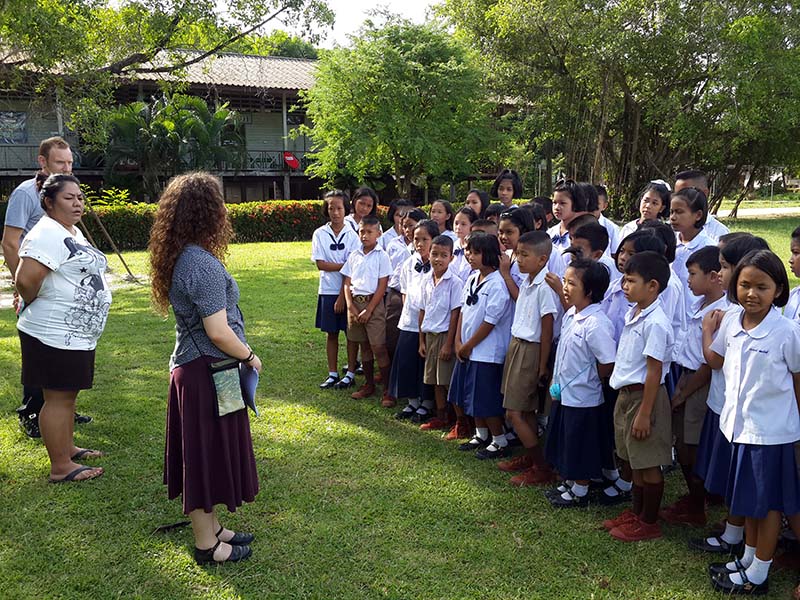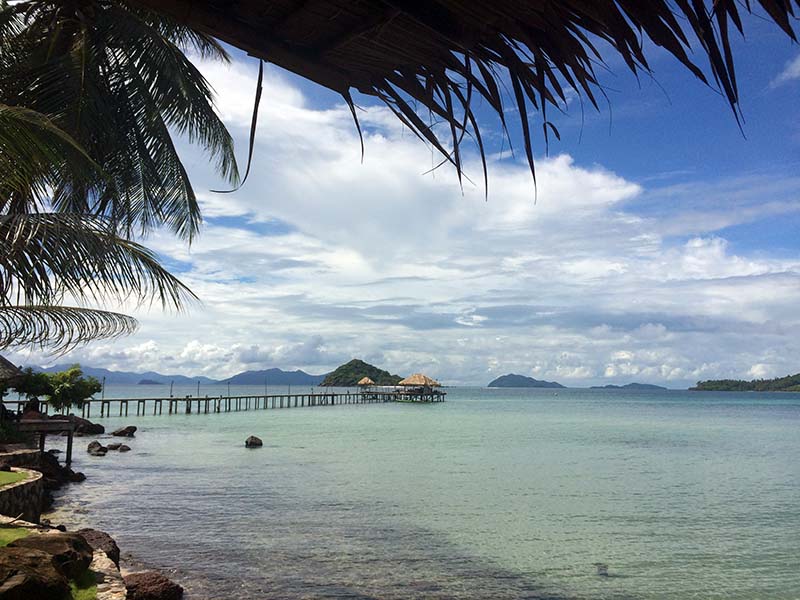However, if you are willing to tweak that old travel formula a little and plan out your trip cleverly, then you can make a small amount of money go a very long way.
I know this because I’ve done it. I’m useless at saving, and I’ve never been given the money to travel with by my parents or anything like that, but I managed to travel the world for 2 years on a budget that many people would struggle to make last a few months.
Here are some of the things that I learned on my trip. Hopefully, they’ll save you money too, and help you to travel for longer.
Choose appropriate destinations

Photo by Mathias Erhart
If you’re trying to stick to a tight budget, then your biggest limitation is going to be the countries and areas that you’ll be able to afford.
Unfortunately, if you want to spend a month in places with a high cost of living, such as Japan or Norway, you’re going to have to accept that it will eat into your budget fast. When planning, try to be realistic and balance where you want to visit with how long you want to travel for.
On my trip, I ensured that I didn’t spend too long in any relatively expensive countries without securing a source of income. When traveling in cheaper countries, I could relax a bit more and not have to worry about my budget so much.
Try different types of accommodation

The biggest budget drain for almost any traveler is accommodation. Ensuring that you have a place to stay for the night can fast become incredibly expensive, with even modest hotels often costing $100+ per night in some countries and cities.
While these kinds of costs might not matter on a short vacation, when you’re traveling long term, they’re simply not sustainable unless you’re carrying some serious financial clout.
There are, fortunately, a number of ways to minimize the costs. During my travels, I tried a lot of different tactics.
An obvious general rule is to opt for dormitory-style accommodation over private rooms. It might not sound ideal to some who are accustomed to privacy, but you actually get used to it very quickly. In fact, in many, it is better than private accommodation as it is far more social.
Other alternatives include things like block-booking a week or more, which can grant you discounts on your stay in many cases. You can also look into more modern accommodation providers, such as Airbnb, which can sometimes offer better value for money. Services like Couchsurfing can even help you find accommodation free of charge.
I tried all of these methods and more during my trip depending on my needs at the time, and all helped me to save a lot of money.
Volunteer or work

Offering your services as a volunteer or employee while traveling are some of the best ways to extend your trip, while also enriching your experience.
Becoming a volunteer overseas is an excellent way to achieve this. With a good organization, you can cover your accommodation and food for a modest fee, and have the satisfaction of contributing to a great cause.
On top of this, you can learn new skills, meet all kinds of interesting people, and see areas of the world that you never would normally.
Another option is to take up actual paid employment while traveling. Obviously, this is the best way to boost your budget, but it has some downsides too. For example, you will generally have to speak the language of whichever country you’re in to get a job, which may limit your options significantly. Also, you need to start worrying about visas, which can be difficult to obtain in some cases.
Personally, I took on both paid work and volunteer placements on my trip, and while the extra cash from my job was useful, I definitely preferred the experience of volunteering and saved a lot of money by doing it too.
Don’t waste on transport, food, and drink
These 3 things are going to be the next largest expenses for any traveler, beyond accommodation. They are all vital expenses, as you can’t travel without using some form of transport, and clearly, everybody needs to eat and drink. However, this doesn’t mean that you have to spend a fortune on them.
When it comes to transport, the easiest way I found to save was to book as many things as possible from within the country in which I was traveling. This way, you don’t have to pay the middle-man, you can often haggle down prices, and you get the bonus of having more freedom to chop and change your plans as you go.
With transport, it’s also a good idea to use local options whenever possible. Tourist coaches are regularly several times the price of local buses, and you also get a much more authentic experience of the culture by traveling on local transport.
With food and drink, you just have to be disciplined. Eating out in a restaurant should be seen as a treat rather than a daily occurrence (although this depends on the country, as it can be very cheap in places like Southeast Asia). I utilized hostel kitchen as much as I could, took advantage of free breakfasts whenever they were available and enjoyed street.

Be realistic and take time to plan
At the end of the day, all it really takes to save a lot of money and travel for as long as possible is to plan ahead a little and exercise a bit of restraint.
If you’re realistic with yourself about what you can afford, you will be amazed at how far your money can go.